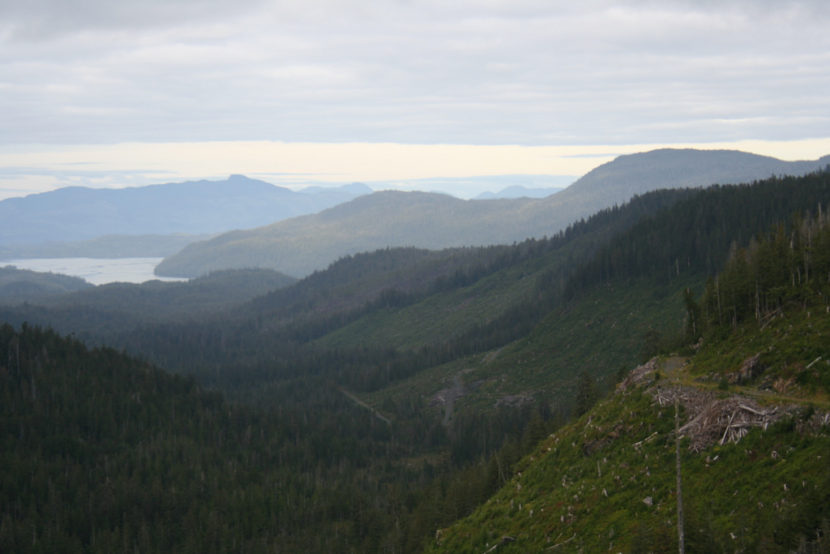
An environmental group doesn’t think it’s fair that federal money was given to a timber industry group to assess trees that could be suitable for helicopter logging in the Tongass National Forest.
Documents obtained by Earthjustice show a contract between the state Division of Forestry and the Alaska Forest Association worth up to $1.3 million, or $260,000 a year, for a span of five years.
Olivia Glasscock, an associate attorney with Earthjustice, said it’s like paying an industry group to pick the trees it wants to harvest.
“I think it really just highlights the imbalance in how the public is getting to participate in these planning and management processes and how the industry is getting to participate in it,” she said.
But Chris Maisch, the director of the Alaska Division of Forestry, said that’s not the case. He helped oversee the contract. The Forest Service first granted the money to the state. He said both the Forest Service and the state are trying to gain more experience in selecting marketable trees.
Recently, Southeast Alaska’s only helicopter logging contractor stopped doing business. Maisch would like to see another company come online. And he said there needs to be a new generation of foresters who know how to facilitate that work; it makes sense the Alaska Forest Association, or AFA, would be helping with that.
The group has been around a long time.
“I wouldn’t agree that it’s AFA picking the trees,” Maisch said. “It’s actually a training process to identify the criteria to make the tree economic, and then it can be safely flown out.”
In an emailed statement, the Forest Service said, “The partnership implements the training and information exchange through training cadres made up of agency, industry, and other partners having the appropriate expertise.”
The location of some of this training has been hotly debated because it’s happening on land slated for a controversial timber sale.
Prince of Wales Island could be the location of the largest federal timber sale in Alaska in more than a decade. But the plans are being litigated in federal District Court.
The plaintiffs, including Earthjustice, say the Forest Service hasn’t provided a detailed map of the areas that could be logged, which makes it impossible for the public to weigh in on the environmental impact.
Earthjustice says it would like the Forest Service to end this grant “immediately.”
This story has been updated.